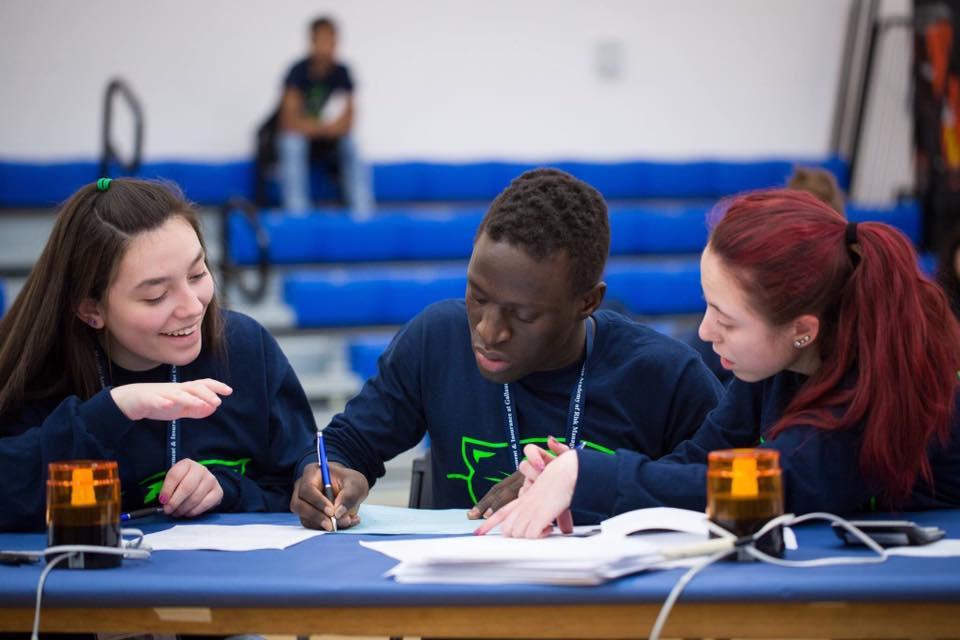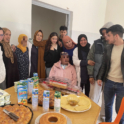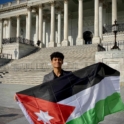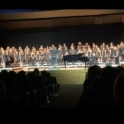Maryame has taken the lessons learned from her exchange year to make a difference in her community.
STORIES
Learning the Signs
Imagine not being able to communicate with those in your community - even family members. Feelings of frustration and isolation develop for all involved, as they did for Nehemiah when he went deaf.
“My family hardly talked to me, unless they had to,” Nehemiah said.
Nehemiah Danjuma (YES alumnus 2015-2016, hosted by World Link in Arvada, CO) lost his hearing when he was 10 years old. While the cause wasn’t quite clear, doctors later diagnosed him with meningitis, and Nehemiah’s hearing loss was nearly one hundred percent.
“[I went] to bed with some ear pains in the middle of the night, and by morning discovered I couldn’t hear,” Nehemiah said.
With a wide gap in communication between the hearing and the deaf communities in Nigeria, Nehemiah Danjuma saw an opportunity to break this barrier after returning home from his exchange year in the United States.

“My experience as a YES student instilled in me the values of volunteerism and community service,” Nehemiah said. “It’s this new passion that helped me identify issues in my community and take the necessary steps to address them.”
Over the months of February through May 2017, the first phase of a new sign language class for the public trained 42 hearing participants so they could communicate with those who have hearing disabilities.
Nehemiah and others trained participants including family members, potential interpreters, and the general public in Kaduna state. The four-month long workshop not only taught sign language, but also released a few radio and television campaigns to spread awareness about the deaf community and the importance on inclusion.
Nehemiah said this was needed, as many deaf people are discriminated against by the hearing communities due to the lack of ability to communicate.
“Discrimination and lack of equality is apparent when trying to get an education, a job, health care, and other necessities,” Nehemiah said. “Partly because there is no law like the Americans with Disability Act to ensure we have full inclusion and access, hence the need for learning sign language in Nigeria.”
The program’s successful first phase saw many of its participants utilizing their new found signing skills in their professions and volunteer work, according to Nehemiah.
“Some of the participants we trained have gone on to become teachers in deaf schools or volunteer interpreters in churches and other gatherings,” Nehemiah said. “There are some who work in the health professions and are using signing to communicate with their hearing impaired patients.”

Nehemiah and his team quickly began working on a second phase of the program. Phase two began in November 2017 with 46 participants, and is ongoing through February 2018 with weekly meetings being held each Saturday. With the second round of courses, Nehemiah looked to reach people outside his home state of Kaduna.
“We are looking to actively involve parents of deaf kids through sign language clubs at local deaf schools where parents are invited to meetings to learn and improve their signing,” Nehemiah said.
The idea of clubs for the parents stems from the need to help parents sustain their signing skills, a main goal for Nehemiah when he started this project.
“Parents who benefitted from the programs now use sign language in their homes to communicate with their children,” Nehemiah said. “We [felt] the need to promote the learning of sign language, as it will pave out the way to a more inclusive and accessible environment for the deaf.”
Nehemiah’s program is funded by a grant he and his team received from the United States Embassy in Abuja through its Mission Nigeria grant program and annual program statement.





